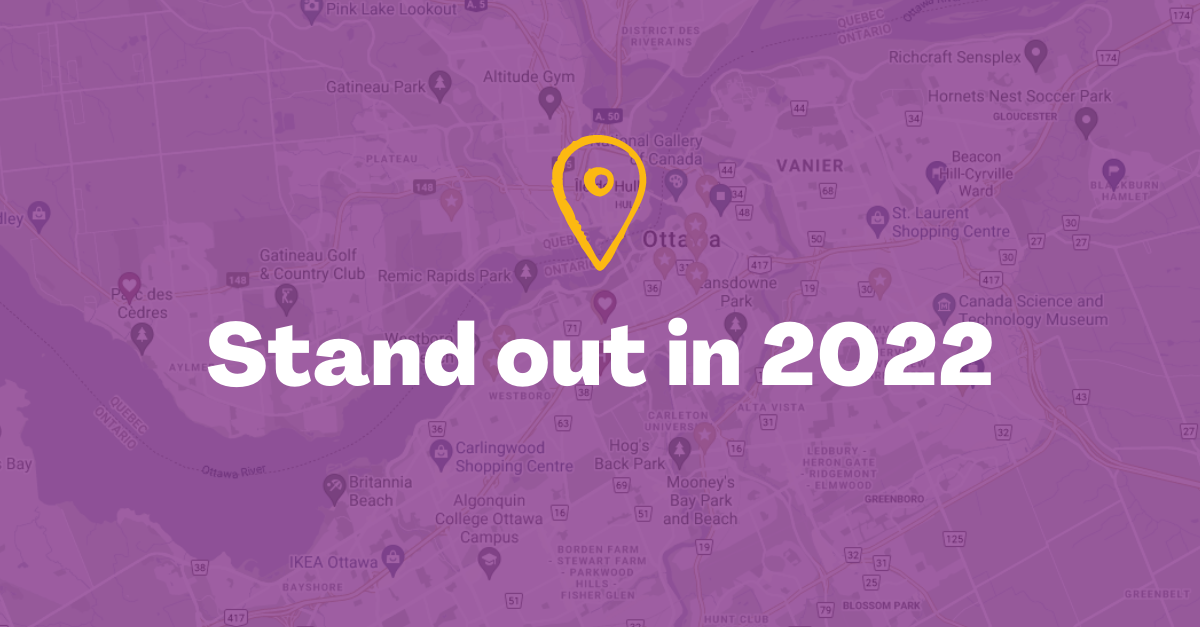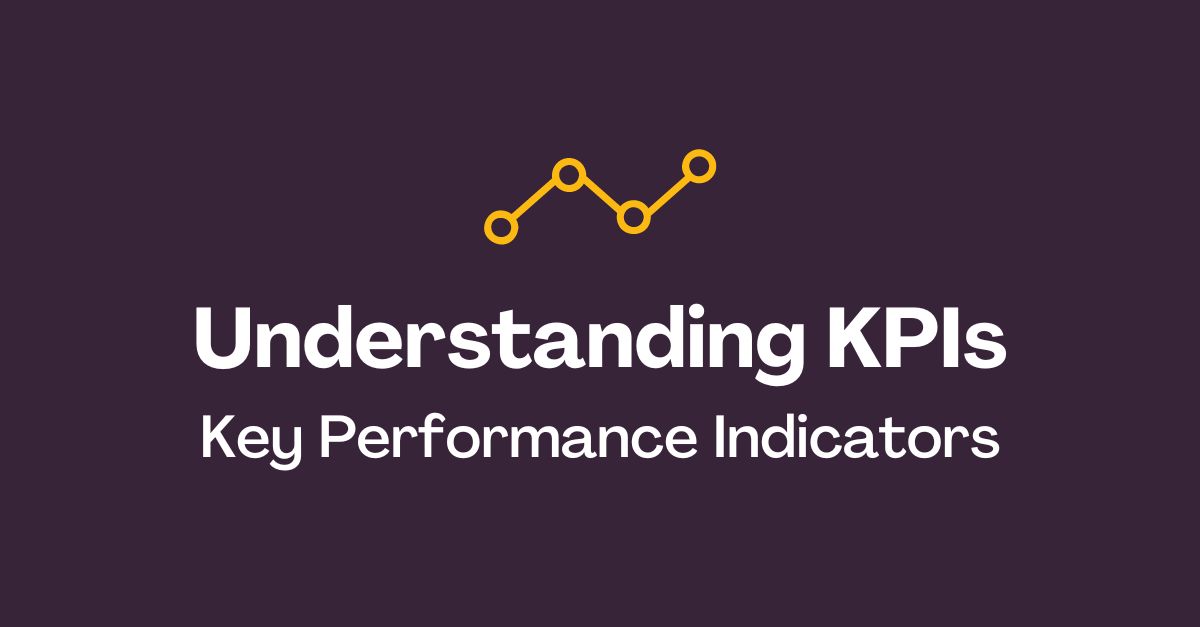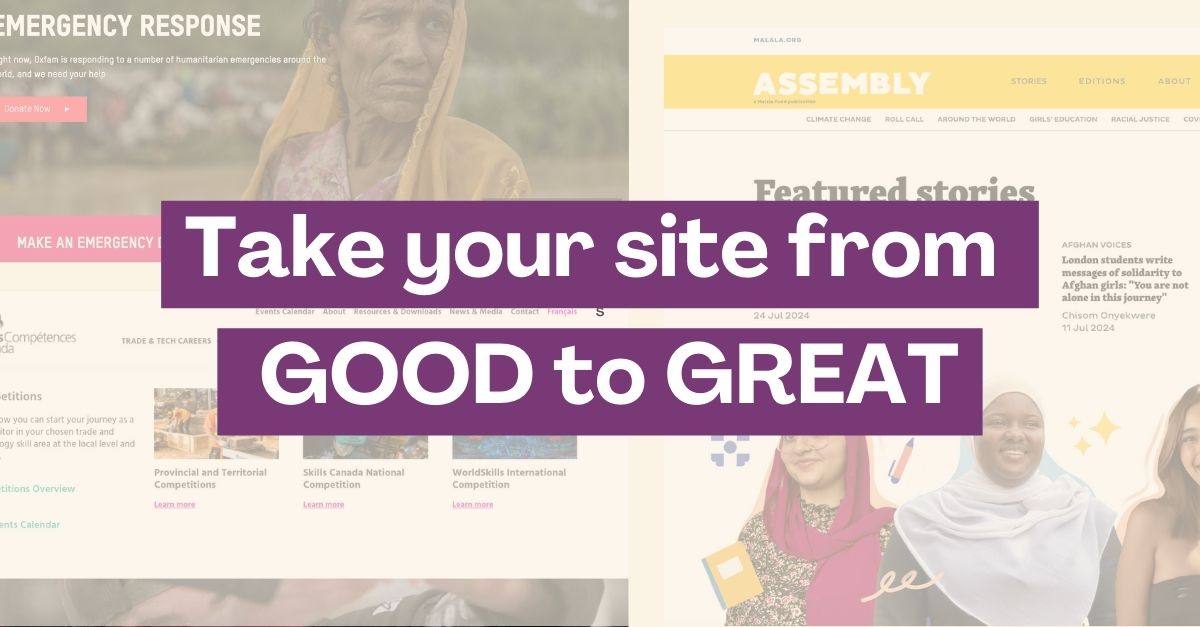"*" indicates required fields
SEO keyword research tutorial: how to perform keyword research

So you’ve learned the importance of using keywords that are relevant to your business. Now what? It’s time to start conducting keyword research for your own website.
There are many keyword research tools out there. We highly recommend Ubersuggest, since it’s free and provides detailed keyword insight.
How to use Ubersuggest
Let’s walk through how to use the tool with an example. One of our clients, Michael, is the owner of a home inspections business. He offers three types of services: home inspections, WETT inspections and septic inspections.
For the sake of simplicity, let’s focus on trying to optimize one of his service pages. We’ll choose the page specific to his WETT services.
To start the research, we want to choose what is called a ‘seed keyword’, which is an idea related to the service. In this case, we will choose to write ‘’WETT inspection’’ in the search bar, and choose ‘’English Canada’’ as the language and location.
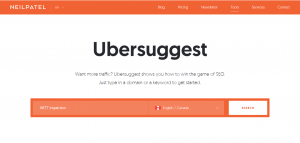

Boost your online presence with our help
- Web design and development
- SEO and PPC
- Social media strategy
- AI technology
Which metrics matter the most?
Once the page loads, scroll down to the ‘’keyword ideas’’ section.
All you really need to focus on are these two metrics:

- Search Volume
This represents the monthly searches for each keyword. There are 1,600 searches per month for the keyword ‘’WETT inspection’’.
- SEO Difficulty
This represents an estimate of how difficult it would be to rank for this keyword on a scale of 0 to 100, 0 being the easiest to rank for and 100 being the most difficult.
We won’t be considering cost per click (CPC) and paid difficulty (PD), since these are related to Google Ads (paid search), and not SEO (organic search).
Which keyword should you choose?
So once you see a bunch of keyword ideas and their volume and seo difficulty levels – how do you choose?
Ideally you want to choose ONE main keyword for your page that will have a high search volume and low keyword difficulty.
It’s all about finding the right balance between findability and popularity.
You want to choose keywords that are sought out after, but not already saturated within search engine results.
In Michael’s case, Wett Inspection was a good keyword since it has a great volume (1,600 of searches per month), yet it still has an easy SEO difficulty level (25). It’s quite rare to find those types of high volume and easy difficulty level.
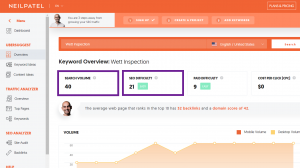
The choice in this case was really easy to make. We decided on WETT inspection as a primary keyword, but we also found other keywords within the keyword ideas section, which we decided to use as secondary keywords.
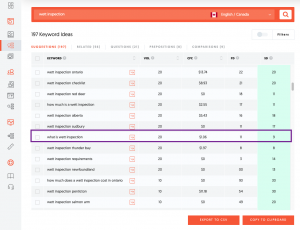
For example, we used “what is a wett inspection” as a secondary keyword, and created a section for it on the service page. Even though it had a low volume, it still can help generate leads since it’s extremely easy to rank for.
Secondary keywords can also be useful because we know this is a question people have, therefore it will likely enhance the user experience and quality of his website’s content.
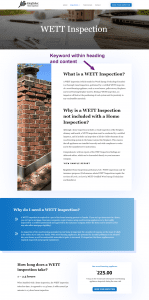
If like Michael, you provide various services, you will want to repeat this process for each set of different keywords.
In order to increase your chances of ranking higher for each of those services/keywords, it’s important to optimize your webpage content with different keywords based on the individual pages.
Increasing the keyword density on a page is a part of content optimization, which you can read more about in our On-Page Optimization blog post here.
Get creative with keyword research and try to think of unique ways you can optimize your webpages, so that you stand out from the competition!
Let's chat about your goals
OR tell us more about you
Swipe up for expert help!
